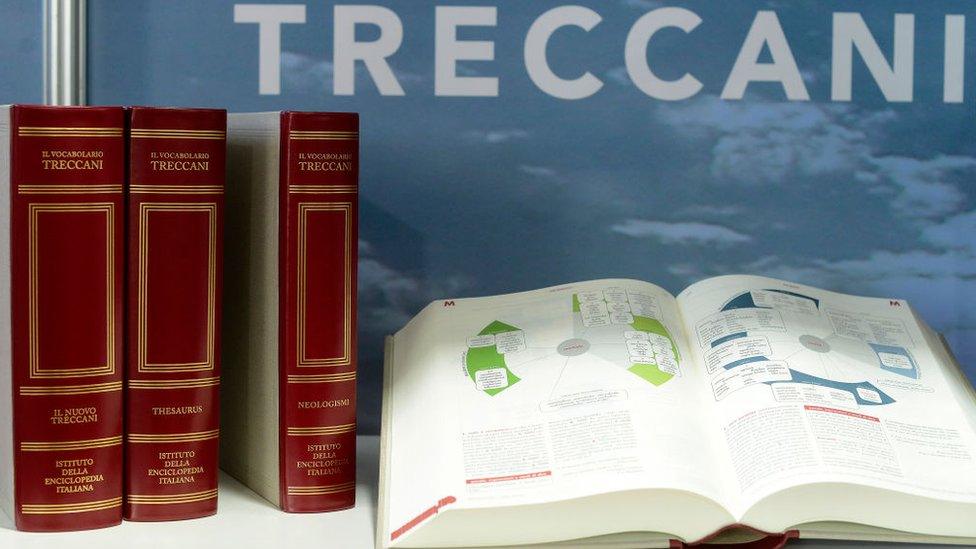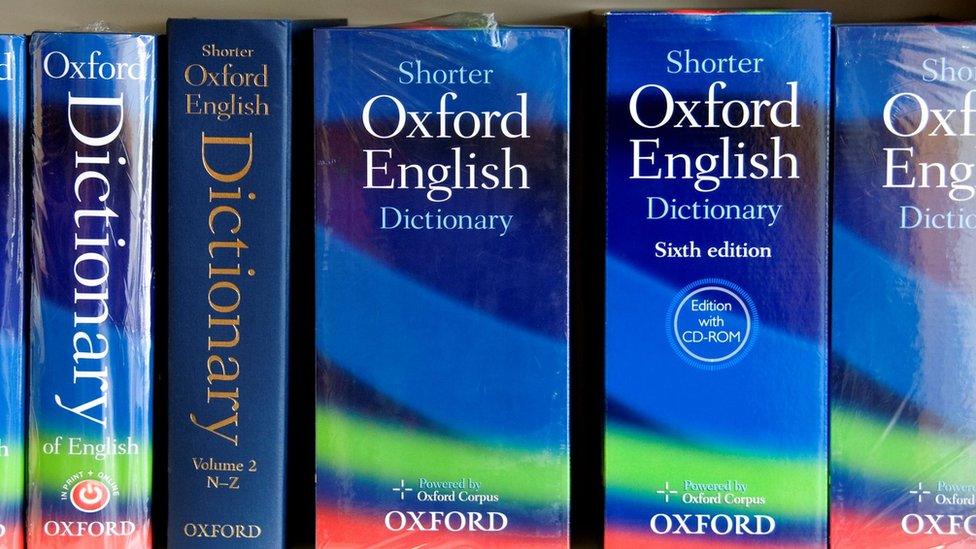Italian dictionary Treccani urged to change 'sexist' definition of 'woman'
- Published

Maria Beatrice Giovanardi, who is leading the campaign, led a similar call for the OED to change its definition
About 100 high-profile figures have signed a letter to the Treccani Italian dictionary calling on it to change its definition of the word "woman".
The campaign argues that derogatory terms such as "puttana" (whore) should be removed from the list of synonyms.
Such words reinforce "misogynist stereotypes that objectify women and present them as inferior", it adds.
Treccani, a leading online Italian dictionary, has not yet responded, but previously defended its approach.
Among the letter's signatories are LGBTQ+ activist and politician Imma Battaglia, politician Laura Boldrini, and Alessandra Perrazzelli, deputy director general of the Bank of Italy.
It was written by activist Maria Beatrice Giovanardi, who was also behind an earlier campaign to get the Oxford English Dictionary (OED) to remove words such as "bint" and "bird" as other ways of saying "woman". After a similar petition attracted tens of thousands of signatures, Oxford University Press updated its definition.
The synonyms given in Treccani's definition are even worse than the OED's because there are 30 terms used to describe sex workers, Ms Giovanardi told Reuters.
Meanwhile, she added, the word "man" was associated with positive terms such as "businessman".
"Language shapes reality and influences the way women are perceived and treated," she wrote in her letter.
"Vocabularies, dictionaries of synonyms and antonyms, encyclopaedias are educational tools of reference and Treccani.it, as such, is consulted in schools, libraries and in all of our homes."
"This will not put an end to everyday sexism, but it could contribute to a correct description and vision of women and their role in today's society."
In a blog post published in November, Treccani said that the dictionary did not "select lexicon based on moral judgment or prejudices".
"If society and culture express negativity through words, a dictionary cannot refuse to document them," it added.

You may also want to watch:
In 2017, the BBC looked at tech solutions to tackle sexism
- Published4 March 2020

- Published16 August 2013

- Published23 November 2020
